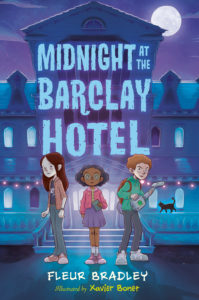“Four Ways to Help Reluctant Readers”
School is about to start back up—in fact, if you live in my neck of the woods in Colorado, school is already up and running again. Online or in-person remains to be seen for some, and some may prefer to homeschool. Which means as parents, we’re thrust into the role of educators.
It’s challenging, to say the least. After my youngest daughter struggled with reading, I decided to homeschool to help her, and discovered she has a reading disability. Where we lived at the time, there was no help in the way of special education—bottom line, I was on my own.
The upside: you know your kid best. The downside: because you’re the parent, your child is less likely to listen to you. I had to become an expert on reluctant readers, learning disabilities, and ways to ensure my daughter would read.
Here are four things that worked for me:
Start with choice
Okay, so there may be certain books that are part of classroom reading. But whenever possible, make what your kid reads a choice—even if (s)he picks the easiest book with the thinnest spine there is. Graphic novels, manga, comics, non-fiction (yes, even those Ripley’s Believe It or Not books) all count. In fact, if there’s a topic your child is interested in (say, sports, bugs, drawing), non-fiction is a great way to connect reading with what (s)he thinks is fun.
Use stepping stones
If you have a kid who really, really doesn’t want to read, and perhaps is reading below their grade level, you’ll need stepping stones. You can’t start with, say, The Bridge to Terabithia out the gate. Using choice where possible, start with a book that’s at a comfortable reading level for your child—it doesn’t matter where that is. Look for illustrated books, graphic novels, and high-interest books with possible pop-culture tie-ins (like books featuring favorite TV characters, comics, or non-fiction with photos).
Audiobooks are great, because your child will be able to hear someone else read the text while reading along themselves. It increases vocabulary, and helps with pronunciation as well.
Once you feel like your kid is improving, try introducing books that are just a level up from where they’re reading currently.
Oh, and as an added note: graphic novels are perfectly fine reading, no matter the reading level! I talk to parents and educators all the time who think that because of the heavily illustrated nature, graphic novels are lesser reading somehow. Here’s the truth: all reading will help your child get ahead—and in all other classes, too.
Read along
It may seem obvious (and you teachers will already be doing this) but for parents at home: try reading along with your child. Not only do you get to read some great books (children’s literature is booming, and has some amazing books), you also get to make an invaluable connection. When my husband was deployed in the military, my daughter and he read the same book, and would talk every few days about what they read. Not only did it allow them to stay close, my daughter’s reading (and math and science) improved exponentially because they were reading together. If you are a grandparent, this is also a great way to stay close to (perhaps far away) grandchildren.
Celebrate progress
You’ve given your child the choice, watched her or him improve… Now find a way to celebrate this progress! Particularly for a kid who has trouble reading, or started below grade level, it’s hard work to move from milestone to milestone. Imagine getting fit, and charting your progress as you walk longer on the treadmill—it’s like that. So celebrate! Try to make the celebration an experience rather than money or a gift when possible: maybe a movie night at home (you can pick one that was made after a book), a day outside, a picnic or other celebration. Your child worked hard—this deserves celebrating. And maybe, now (s)he’ll have a reason to aim for the next milestone…
My daughter is now grown, and has already finished college. I certainly helped her, but in the end, it was her hard work that got her there.
I now do librarian and educator talks on reaching reluctant readers, and like to end each session with why it’s so important to keep kids reading, by the numbers. So here goes, for my fellow statistics people:
- Kids who read proficiently are five times more likely to graduate high school;
- Twenty minutes of reading a day can get your childto their grade level;
- Strong readers answer 66 percent more math questions correctly…*
I could go on a while, but I’ll simply say this in closing: that hard work to reach your reluctant reader? It’s worth it.
*Source: Renaissance (blog series, struggling readers)
Publishes August 25th, 2020 from Viking Books for Young Readers
About the Book: Hunting ghosts and solving the case before checkout? All in a weekend’s work.
When JJ Jacobson convinced his mom to accept a surprise invitation to an all-expenses-paid weekend getaway at the illustrious Barclay Hotel, he never imagined that he’d find himself in the midst of a murder mystery. He thought he was in for a run-of-the-mill weekend ghost hunting at the most haunted spot in town, but when he arrives at the Barclay Hotel and his mother is blamed for the hotel owner’s death, he realizes his weekend is going to be anything but ordinary.
Now, with the help of his new friends, Penny and Emma, JJ has to track down a killer, clear his mother’s name, and maybe even meet a ghost or two along the way.
About the Author: Fleur Bradley is the author of many middle-grade books aimed at reluctant readers, including the (spooky) mystery Midnight at the Barclay Hotel. Fleur is passionate about two things: mysteries and getting kids to read, and she regularly speaks at librarian and educator conferences on reaching reluctant readers. Originally from the Netherlands, Fleur now lives in Colorado Springs with her husband and two daughters, and entirely too many cats.
For more information on Fleur and her books, visit www.ftbradley.com, and on Twitter @FTBradleyAuthor.
Thank you, Fleur, for sharing your experience and advice with us and our readers!



This post is amazing! Thank you for the helpful details and personal stories–I really enjoyed the military buddy reading story and think this idea will be excellent for grandparents as you suggested, especially with COVID-19 dangers.
Thank you, Danielle!